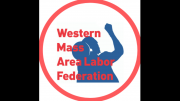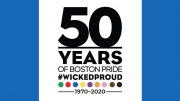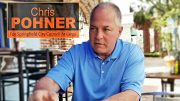By: Brook Rosini/Special to The Rainbow Times—
BOSTON, Mass. — Carolyn Gage is an award-winning lesbian playwright, performer and activist whose work is comprised of feminist essays, dramatic and comedic plays, books, workshops, lectures, and touring performances. The author of 12 books and more than 63 plays, Gage has dedicated her craft and life’s work to encouraging people to “grow toward the light.”
Gage tackles many topics, which include revealing the misogynist politics of patriarchal society, illuminating fundamental exclusionary tactics of both mainstream and marginalized social groups, and engaging people in learning about difference awareness and cultural sensitivity. Her work is designed to elevate interpersonal interactions to a higher plane through cultivating tolerance and empathy for humanity’s innumerable differences, raising awareness of the essential universality of the human condition.
“All of us have internalized oppressive attitudes,” Gage explained. “We have grown up in a culture that is racist and misogynist and ableist and ageist and fat phobic, and so on. Unlearning all of that is a lifelong process.”
One facet of Gage’s work appears in “Interrupting Racism,” described on her website as “a hands-on workshop to give participants the tools to interrupt racism as it happens,” in which participants learn a simple series of steps—a kind of “script”—rehearsed in role-playing situations. [pullquote]“All of us have internalized oppressive attitudes,” Gage explained. “We have grown up in a culture that is racist and misogynist and ableist and ageist and fat phobic, and so on. Unlearning all of that is a lifelong process.”[/pullquote]
“‘Interrupting Racism’ is a shorthand title for my workshop, which is focused on teaching and rehearsing a technique for speaking up, and especially speaking up in public, whenever someone says something that is racially offensive or insensitive,” Gage said.
With an emphasis on providing practical solutions for intervention when witnessing discriminatory or racist speech, “Interrupting Racism” was hosted in September by the Rainbow Lifelong Learning Institute (RLLI) of Boston in Arlington, Mass. Their mission is to offer lesbian, gay, bisexual, and transgender seniors and friends the opportunity to build and strengthen community through educational programs and social activities.
Gage explained that the idea to develop a workshop around the process of constructively confronting offensive speech came out of her own sense of unpreparedness when she encountered those situations herself.
“When people would say things that were offensive, I would sit there and hope someone else would have the courage to confront [it],” said Gage. “Or, I would go home and think about all the clever things I could have and should have said. It occurred to me, because I work professionally in theatre, that perhaps there could be a script—a technique—that could be learned and practiced ahead of time, so that people like me would not be so caught off guard in situations like this.”
Gage’s workshop comes from a place of support, understanding and constructive re-conditioning, where it is understood that re-wiring attitudes and perceptions to recognize, acknowledge, confront, and redirect those behaviors is difficult enough to do when the subject of scrutiny is oneself. This work becomes even more difficult when interpersonal dynamics are introduced into the mix.
“I think that instead of perceiving the confrontation as a personal attack, we could reframe it as a form of supportive coaching,” Gage said. [pullquote]Gage’s workshop comes from a place of support, understanding and constructive re-conditioning, where it is understood that re-wiring attitudes and perceptions to recognize, acknowledge, confront, and redirect those behaviors is difficult enough to do when the subject of scrutiny is oneself. [/pullquote]
Marsha Gerstein, one of the founding members of RLLI and a member of the organization’s Steering Committee, described the workshop as highly relevant to the nonprofit’s mission.
“Learning to challenge and interrupt racism and all forms of oppression is basic to continuing to strengthen our community,” Gerstein explained.
Gage said she felt there are a number of reasons why it is particularly important to discuss issues of racism and how to confront it within the context of the LGBT community.
“In my experience, when people with a shared oppression or identity come together, there can be a kind of unconscious consensus that this should be the priority at the expense of other identities and experiences of oppression,” Gage shared.
She cited examples from her own experience, describing moments when she felt her identity as a lesbian was expected to be her only—or at least primary—identity, prioritized above others.
“I have seen lesbians expected to check our feminism at the door of LGBT coalition organizations, and I have also seen how insensitivity to racial oppression can be ‘business as usual’ in predominantly white LGBT organizations,” said Gage.
However, Gage recognized the special challenges that present themselves within the LGBT community, and that expanding consciousness takes time, energy and discipline. [pullquote]“I have seen lesbians expected to check our feminism at the door of LGBT coalition organizations, and I have also seen how insensitivity to racial oppression can be ‘business as usual’ in predominantly white LGBT organizations,” said Gage.[/pullquote]
“To be fair, authentic inclusivity takes time and it takes resources,” Gage admitted. “I think of the saying, ‘If you want to go fast, go alone. If you want to go far, go together.’ It can be a discipline to remind ourselves that it is more important to go far, and that this is going to cost us the speed and streamlining of those ‘go fast’ strategies which appear so seductively efficient, but which will cost us dearly down the line.”
Gage commended the LGBT community on an already-heightened awareness, because community members themselves experience oppression and prejudice. However, she stressed the fact that there are other elements to racism and other forms of offensive speech so deeply entrenched in society that they become invisible.
“In my experience, most folks in LGBT organizations have enough political savvy to identify and avoid blatant expressions of racism, but we may not be so conscious of the deeply embedded, institutionalized structures that perpetuate inequality, or how these structures are affecting our assumptions and attitudes,” Gage said.
When asked what she hopes for regarding the future of her work leading this workshop, Gage responded: “I teach this workshop because I believe that the more people confront unacceptable behavior, the more that behavior will be extinguished. I also teach the workshop in the hope that we will become less terrified of confronting and being confronted.”
Gerstein provided her own perspective on the efficacy of the workshop and what it taught her.
“I learned a lot there, perhaps most importantly that it is important to interrupt the behavior I find abhorrent and let people know they cannot make oppressive statements without discomfort, but I am not responsible for changing their mind, or to present a completely cogent analysis of their views or words,” Gerstein said.
Gage offered additional advice on how to approach this work. [pullquote]Gage commended the LGBT community on an already-heightened awareness, because community members themselves experience oppression and prejudice. However, she stressed the fact that there are other elements to racism and other forms of offensive speech so deeply entrenched in society that they become invisible.[/pullquote]
“The biggest tip I can give is this: stay safe and stay focused in the confrontation,” said Gage. “An effective confrontation does not need to become a power struggle.”
To learn more about Carolyn Gage and her work, including upcoming workshops and appearances, visit www.carolyngage.weebly.com. For more information about the Rainbow Lifelong Learning Institute Boston, visit www.rainbowlliboston.org.








